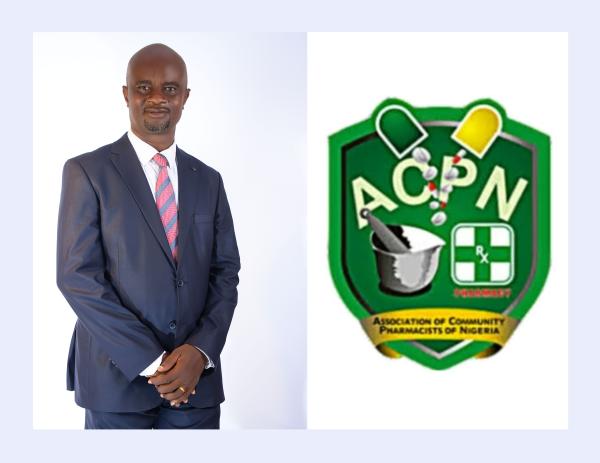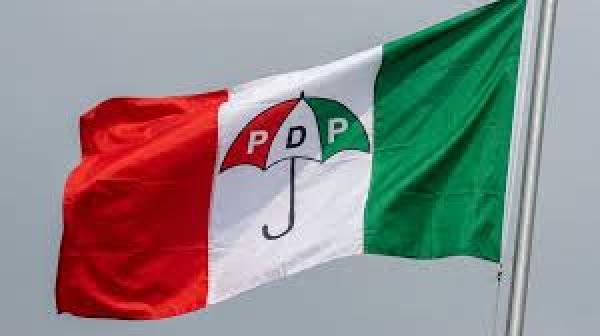
The Association of Community Pharmacists of Nigeria (ACPN) has raised alarm over what it describes as widespread, unlawful pharmaceutical practices taking place across several Federal Health Institutions (FHIs), calling on the Federal Government to urgently intervene and impose sanctions on the companies and pharmacists involved.
Speaking on behalf of the association, the National Chairman, Pharm. Ezeh Ambrose Igwekamma, condemned what he called a “persistent culture of disregard for the law” by some pharmaceutical companies and their superintendent pharmacists, who are allegedly operating illegally within public hospitals—sometimes with the tacit approval of hospital management and regulatory authorities.
According to him, it is “a travesty of justice” that institutions meant to uphold the law are now enablers of the very infractions they should prevent. He accused the Federal Ministry of Health (FMoH) of looking away while unregistered private pharmacy operators take over drug distribution activities in federal hospitals under various Public–Private Partnership (PPP) arrangements.
Pharm. Ezeh criticised the Ministry's earlier experiments with models such as Medipool, describing them as unlawful ventures that have created loopholes in the public drug distribution system.
He insisted that the statutory framework for the management of drug supplies in public hospitals remains guided by Decree 43 of 1989 (now Cap 252 LFN 2004), which established the Essential Drug List and the Drug Revolving Fund (DRF).
He stressed that for the DRF to function effectively, pharmacists must be in full control of procurement, distribution and management, as provided in the DRF manuals.
However, he lamented that over the years, hospital Chief Medical Directors (CMDs) and Medical Directors (MDs) have allegedly mismanaged DRF resources, resulting in recurrent stock-outs and unstable drug availability in many federal hospitals.
The ACPN Chairman highlighted what he termed the most successful DRF model ever recorded in Nigeria—the DRF project of the Department of Pharmacy at the National Orthopaedic Hospital (NOH), Igbobi. Under the leadership of pharmacists, the department was able to build a N200 million pharmacy complex in 2014 without compromising the DRF account.
“No other health professional group or institution has matched such a landmark achievement,” he said, regretting that despite repeated warnings from the ACPN between 2020 and 2022, the FMoH failed to intervene as irregularities began to undermine the once-excellent model.
The ACPN maintained that the PPP pharmacy models currently operating in several FHIs—including UCH Ibadan, UDUTH Sokoto, AKTH Kano, National Hospital Abuja, NAUTH Nnewi, JUTH Jos, FMCs in Makurdi, Umuahia, Jabi and Nguru, ISTH Irua, UMTH Maiduguri, among others—are illegal.
The association cited multiple breaches of the Pharmacy Council of Nigeria (PCN) Act 2022, including:
• Section 22(1): Only registered and inspected pharmacies may store, sell or dispense medicines.
• Section 27(5): Private pharmacies are prohibited from operating inside public health facilities.
• Section 29: Every pharmacy must be under the direct control of a superintendent pharmacist.
• Section 54: Running an unregistered pharmacy constitutes a criminal offence.
Pharm. Ezeh further stated that the affected FHIs are also in violation of the Public Procurement Act 2007, which mandates transparent, competitive bidding in all procurement processes.
He noted that over 20 pharmacy premises operating within the PPP arrangements are not registered for such operations, with one “particularly aggressive company” in Lagos allegedly taking over the pharmacy unit of a prominent teaching hospital while dropping the names of senior government officials to legitimise its activities.
The ACPN issued a strong warning to superintendent pharmacists whose practising licences are purportedly being used to cover these questionable arrangements.
He said they have until the end of 2025 to regularise their status with their hospital managements or face disciplinary action from the association in 2026. The ACPN also plans to push for wider sanctions from regulatory authorities under the Consumer Protection and Trade Malpractices Act.
Pharm. Ezeh reaffirmed ACPN’s position that tackling drug scarcity, ensuring drug security and strengthening Nigeria’s pharmaceutical supply chain can only be achieved by supporting local drug manufacturing through credit guarantees. ensuring fair and transparent procurement processes, protecting DRF accounts as legitimate working capital lines and upholding the principles of Good Pharmacy Practice (GPP) across all 73 FHIs.
He emphasised that financing gaps and irregular systems continue to weaken quality, equity and access to essential medicines in public hospitals.
The association concluded by urging President Bola Ahmed Tinubu, to call the Coordinating Minister of Health and Social Welfare to order, warning that the “government-induced chaos” in drug distribution is causing avoidable harm to the health sector.
“We must restore sanity, legality and professionalism in drug distribution in the public sector,” the ACPN Chairman insisted. “The health of the Nigerian people depends on it.”






















